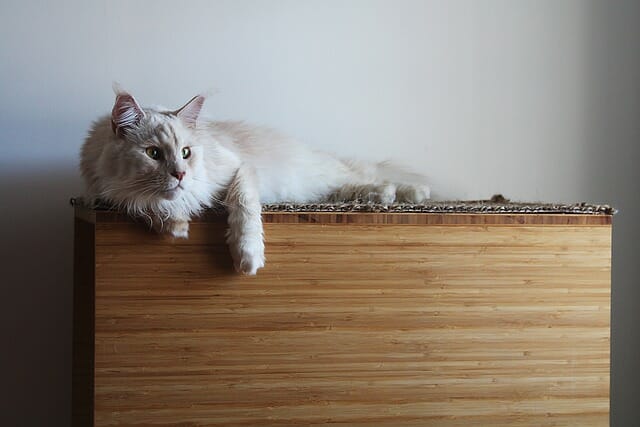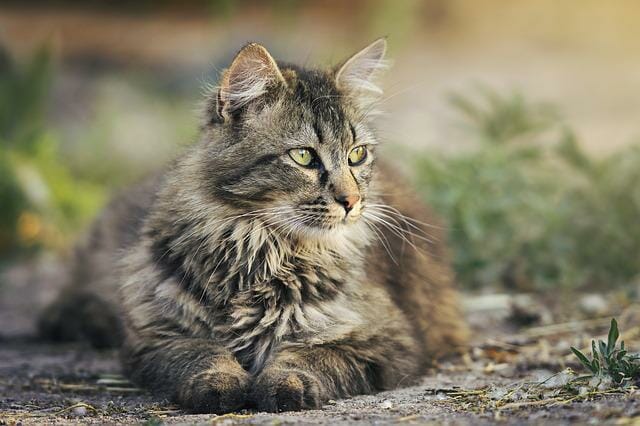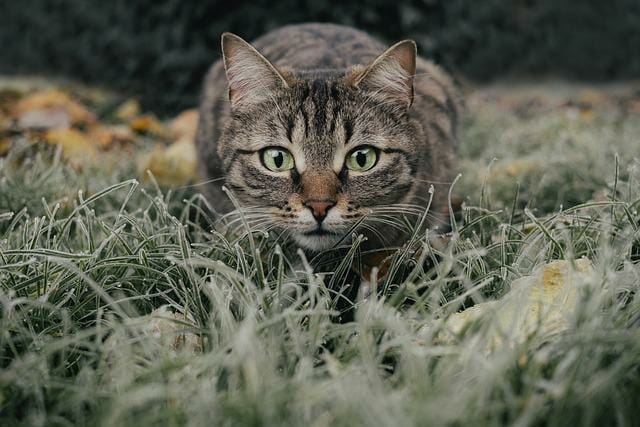Does a Cat Fart: Reasons Why a Cat Farts and How to Deal With It
Yes, cats do fart! Farting is a natural bodily function in all mammals, including cats. Farting occurs when gas builds up in the intestines and is released through the rectum. Cats may pass gas for various reasons, including dietary changes, gastrointestinal issues, or simply because they swallowed air while eating or drinking. If your cat is passing gas frequently, it’s best to consult with your veterinarian.


Table of Contents
Reasons Why Cats Fart
Changes In Diet
A cat’s diet can significantly impact its digestive system and the gases produced during digestion. Foods high in fiber, such as vegetables or grains, can increase gas production in the intestines, leading to farting.
Many cats are lactose intolerant, so they have difficulty digesting dairy products. If a cat consumes dairy products, it can lead to the production of gas and farting. Changes in a cat’s diet can also lead to farting, as the digestive system may need time to adjust to the new food. Overfeeding a cat can lead to excessive gas production and farting. In addition, cats that eat too quickly may swallow air while they eat, which can produce gas in the intestines.
Eating Too Quickly
Cats that eat too quickly may swallow air while they eat, which can produce gas in the intestines and cause them to fart. Eating too quickly can also lead to other gastrointestinal issues, such as vomiting, regurgitation, and indigestion.
Slow feeder bowls are designed to make it more difficult for cats to eat quickly by creating obstacles or barriers they must navigate to get food. Offering smaller, more frequent meals can help prevent your cat from feeling the need to eat quickly or overeat.
Puzzle feeders are toys or devices that require your cat to work for their food, such as using their paws or nose to manipulate the toy to release the food. Some cats may become anxious or stressed when eating, especially if other pets or distractions are around. Feeding your cat in a quiet, calm environment may help reduce their anxiety and encourage them to eat more relaxedly.
Gastrointestinal Issues


Gastrointestinal issues can contribute to farting in cats, as they can disrupt the digestive system’s normal functioning and lead to gas production. Some common gastrointestinal issues that can cause farting in cats to include:
- Inflammatory Bowel Disease (IBD): According to Cornell University, IBD is a condition in which the lining of the cat’s digestive tract becomes inflamed, leading to diarrhea, vomiting, and other gastrointestinal symptoms.
- Irritable Bowel Syndrome (IBS): IBS is a condition in which the cat’s digestive system is overly sensitive, leading to abdominal pain, diarrhea, constipation, and other gastrointestinal symptoms.
- Food Allergies or Sensitivities: Some cats may be allergic or sensitive to certain foods, which can cause inflammation in the digestive system and lead to gastrointestinal symptoms, including farting.
- Intestinal Parasites: Certain intestinal parasites, such as tapeworms, can disrupt the normal functioning of the digestive system and cause gastrointestinal symptoms, including farting.
Stress
Stress can also contribute to farting in cats. When a cat experiences stress, it can lead to changes in its digestive system, including increased production of stomach acid and changes in the gut microbiome. These changes can lead to the production of gas and flatulence.
Cats are creatures of habit, and changes in their environment, such as moving to a new home or introducing a new pet, can be stressful. They are sensitive to loud noises, and exposure to loud or unexpected noises, such as fireworks or thunderstorms, can cause them to become stressed.
Cats need regular exercise to stay healthy and happy. A lack of exercise can lead to stress and other health issues. They also experience illness or pain and may become stressed, contributing to gastrointestinal issues and farting.
Swallowing Foreign Objects
If a cat swallows a foreign object, it can cause digestive issues and flatulence. Cats, especially curious kittens, may occasionally swallow foreign objects such as toys, hair ties, string, or small plastic or rubber pieces. When this happens, the object can get stuck in the cat’s digestive tract, causing a blockage or obstruction.
A blockage can cause various symptoms, including vomiting, diarrhea, loss of appetite, and lethargy. In some cases, a blockage can be life-threatening if it causes a rupture or perforation of the intestinal wall.
Tips to Deal With Farting in Cats


Adjust Their Diet
Adjusting your cat’s diet can help reduce flatulence. Look for cat food with high-quality, easily digestible protein sources such as chicken, turkey, or fish. Avoid cat food that contains fillers such as soy or wheat, which can be difficult to digest and lead to flatulence.
Switching to a limited-ingredient diet may help reduce flatulence if your cat has food allergies or sensitivities. These diets contain a limited number of ingredients, making it easier to identify and eliminate potential allergens.
Some cats may have difficulty digesting grains such as corn or wheat, which can lead to flatulence. Consider switching to a grain-free cat food that uses alternative carbohydrate sources such as sweet potatoes or peas. Wet cat food can help keep your cat hydrated and may be easier to digest than dry kibble. Some cats may also be sensitive to certain ingredients found in dry food.
When introducing new foods, do so gradually to give your cat’s digestive system time to adjust. Start by mixing a small amount of the new food with their current food and gradually increasing it over several days.
Feed Smaller Meals
Feeding your cat smaller meals throughout the day can help reduce flatulence. Instead of feeding your cat one or two large meals per day, divide their daily portion into smaller, more frequent meals. An automatic feeder can be set to dispense small amounts of food at regular intervals throughout the day.
Use a measuring cup to ensure you’re feeding your cat the correct portion size for their weight and activity level. Overfeeding can lead to digestive issues and flatulence. Leaving food out all day for your cat to eat whenever they want can lead to overeating and digestive issues.
Please consider how quickly your cat eats and whether they swallow air. For example, if your cat eats too quickly, try using a specialized bowl or feeder to slow down eating.
Treat Any Underlying Medical Conditions
If your cat is experiencing excessive flatulence, it could be a symptom of an underlying medical condition. Therefore, it’s important to consult with your veterinarian to rule out any medical issues contributing to your cat’s flatulence.
